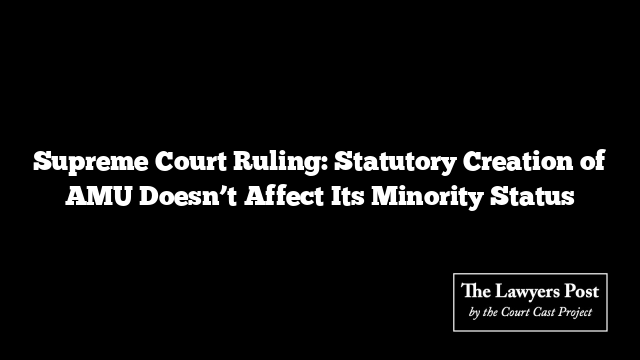In a landmark decision, the Supreme Court has ruled that the minority status of an educational institution is not negated simply by its creation through statute, its administrative structure, or the involvement of non-minority individuals in its management. The verdict, delivered by a 4:3 majority, overruled a previous judgment that had stated that Aligarh Muslim University (AMU), being established by a parliamentary Act, could not claim minority status under Article 30 of the Constitution.
The case stemmed from AMU’s claim of entitlement to exclusive reservation for Muslim candidates in its postgraduate medical courses. The Allahabad High Court had earlier struck down the university’s actions, arguing that it was not a minority institution due to its statutory creation. The Supreme Court’s majority opinion, authored by Chief Justice DY Chandrachud, along with Justices Sanjiv Khanna, JB Pardiwala, and Manoj Misra, emphasized that an institution need only be established by a minority community to be considered a minority institution. Administration by minority members is not a prerequisite.
This ruling challenges the past judgment in S. Azeez Basha v. Union of India (1967), which had asserted that an institution created by an Act of Parliament could not be categorized as a minority institution. The bench’s majority clarified that the enactment of a law to regulate such institutions does not strip them of their minority status.
The issue of AMU’s minority status will now be decided by a regular bench in line with this new legal interpretation. Meanwhile, Justices Surya Kant, Dipankar Datta, and Satish Chandra Sharma each penned separate dissenting opinions, offering alternative perspectives on the matter.





